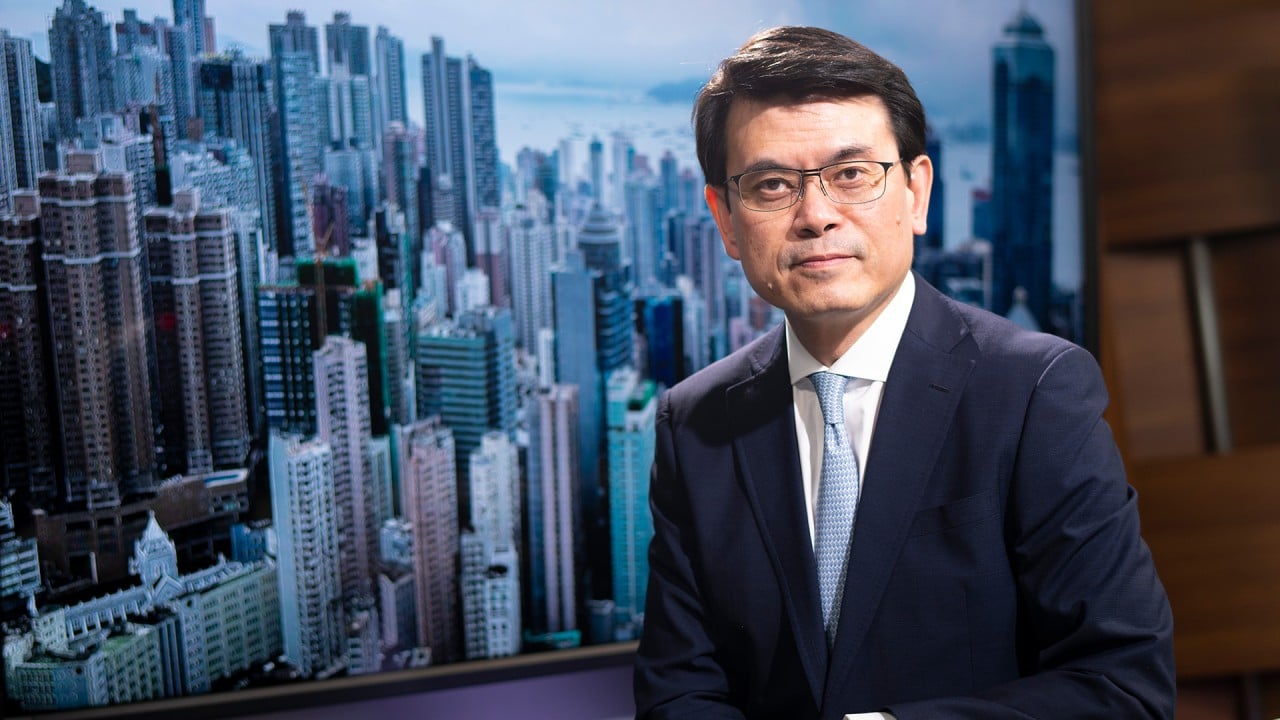
Chinese academics claim US has started cold war as tensions simmer over South China Sea, Xinjiang, Tibet, Hong Kong
- Survey published by the Chongyang Institute for Financial Studies at Renmin University contacted 100 Chinese researchers
- Survey offers a glimpse into China’s perception of its growing rivalry with the US over the South China Sea, Xinjiang, Tibet and Hong Kong
The United States is launching a cold war against China, according to almost two thirds of Chinese researchers in a survey conducted by a Beijing-based think tank.
A total of 62 out of the 100 respondents to the survey published by the Chongyang Institute for Financial Studies at Renmin University agreed when asked “is the US launching a new cold war against China?”
Questions could be raised over the accuracy of the results as, like political opinion surveys, views against official lines in China can often be suppressed.

12:13
‘No winner’ amid rising US-China tensions, says Hong Kong’s commerce chief Edward Yau
But it does offer evidence that China is leaning towards intensifying its rivalry with the US, having previously maintained a mainstream view that the bilateral relationship can be “neither too good nor too bad”.
The full list of respondents was not published, but from the names provided, the survey contacted representatives from universities and think tanks in China, including the Chinese Academy of Social Sciences and the Research Development Centre of the State Council.
FBI director Christopher Wray said on Tuesday that China is the “greatest long-term threat” to the US as Beijing is seeking to become the world’s only superpower with a state-directed “campaign of theft and malign influence”.
Today’s proponents of ‘rivalry partnership’ [with China] are overlooking the possibility that the Chinese aren’t interested in being frenemies. They know full well this is a cold war, because they started it
Niall Ferguson, historian and a fellow at the Hoover Institution, wrote in an opinion piece published by Bloomberg News that a new cold war is the reality and that it is China, not the US, that started it.
“Today’s proponents of ‘rivalry partnership’ [with China] are overlooking the possibility that the Chinese aren’t interested in being frenemies. They know full well this is a cold war, because they started it,” Ferguson wrote.
A total of 58 per cent of the respondents to the survey by the Chongyang Institute for Financial Studies at Renmin University, though, believe China and the US can avoid the Thucydides Trap, a term that describes an unavoidable conflict between an existing power and a challenger.

05:50
What you should know about China's new national security law for Hong Kong
A military conflict between China and the US is inevitable, according to 27 per cent of those surveyed, while 82 per cent feel the new cold war between the two nations would be different from the 1947-91 conflict between the US and the former Soviet Union due to greater economic interdependence.
“We should cooperate wherever and whenever possible,” Le told a video conference co-hosted by the Asia Society and the Chinese People’s Institute of Foreign Affairs.

